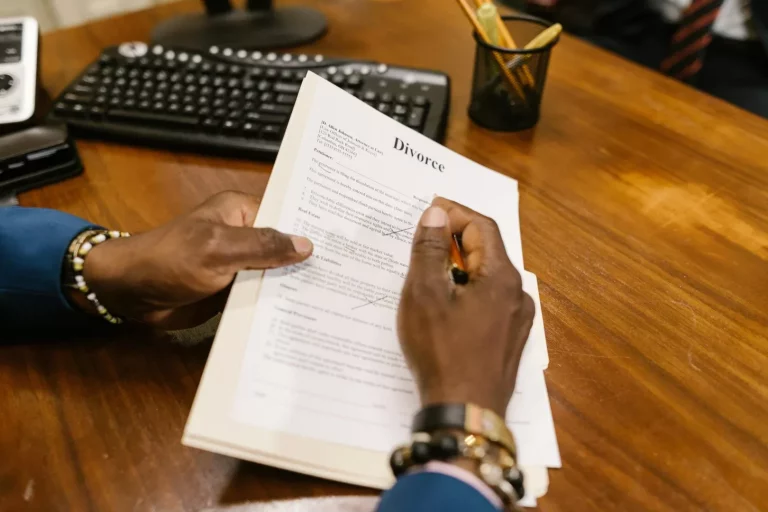Financial Planning for Divorce: A Comprehensive Guide
Ever wondered how to protect your finances during a divorce? Our expert team at TheBostonDivorceLawyer is here to guide you through financial planning for divorce. Learn valuable tips and strategies to secure your financial future today.
As demonstrated by legal professionals, financial planning for divorce involves understanding all assets, debts, and income sources. It is crucial to consider tax implications, custody arrangements, and how to divide property fairly.
Assets
When you’re going through a divorce, it’s important to know what assets you and your partner own. This includes things like savings accounts, retirement accounts, real estate, and personal items.
You need to list all assets, whether they’re in your name or both names. Knowing exactly what you have will help make sure everything is divided fairly. To do this, you’ll need to collect documents like bank statements, tax returns, and property deeds.
Once you have a list of assets, you’ll need to find out how much each one is worth. This might mean getting help from financial experts like accountants or appraisers. When all is said and done, knowing the value of everything helps in reaching a fair settlement with your partner.
Sometimes, figuring out who owns what can be tricky. For example, if you had something before you got married, it might be considered your separate property and not be split up. But things you got while married are usually considered marital property and may be divided.
It’s also important to think about taxes. Some assets might have tax consequences when you transfer or sell them, which could affect your finances after the divorce.
In short, understanding and dividing assets is a big part of planning for a divorce. Making sure everything is done fairly will help you have a stable financial future after the divorce.
Debts
When a couple decides to divorce, they need to figure out how to deal with any debts they have, like credit card bills, student loans, mortgages, and car loans.
Usually, these debts are considered joint debts, so both spouses are responsible for them. Deciding who pays for what can be tricky and might need advice from a financial expert or lawyer.
It’s important for both people to understand what debts they owe and agree on how to pay them off. On a serious note, this could mean selling stuff, refinancing loans, or working out payment plans with creditors.
Ignoring debts during a divorce can lead to big problems, like lower credit scores, legal trouble, and ongoing money stress. Both spouses should be open about their debts, cooperate on a repayment plan, and get professional help if they need it.
By dealing with debts during the divorce, couples can make the financial transition easier afterward.
Alimony
Alimony is meant to help a spouse who earns less or can’t support themselves financially after a divorce. The amount of alimony depends on several factors, like how long the marriage lasted, each spouse’s income and earning potential, and their lifestyle during the marriage. Alimony can be paid all at once or in regular payments.
When planning finances during a divorce, alimony is a key factor that can significantly affect both spouses. The spouse receiving alimony may need it to maintain their lifestyle and pay bills. Meanwhile, the spouse paying alimony has to plan for these payments, which could impact their ability to save money or meet other financial goals.
It’s important for both spouses to carefully think about alimony in their divorce agreement. Getting advice from a financial planner or lawyer can help ensure the alimony terms are fair and workable for both sides. Also, understanding the tax effects of alimony payments is essential for good financial planning.
Budget
A budget helps you keep track of how much money you make and where you spend it. Start by listing all your income sources like salary, alimony, and child support. Then, write down all your expenses such as rent, utilities, groceries, and insurance.
After a divorce, you might have extra costs like legal fees and setting up a new home. It’s important to prioritize these and adjust your budget. Look for ways to save money and cut costs where you can.
Having a budget helps you make smart choices about your finances. It shows you where your money goes and highlights areas where you can spend less. If you think about it, this can prevent you from falling into debt and help you build a steady financial future after your divorce.
It’s also important to talk openly with your ex-partner about your finances, especially if you share expenses or have kids. Being honest about what you need can help both of you manage better.
Getting advice from a financial advisor or counselor can be very helpful. They can guide you in making a good budget and smart financial choices. Remember, a budget is a great tool to help you take control of your money and confidently move forward after a divorce.

Savings
Saving money during these uncertain times is important. It can help you cover expenses and keep up your lifestyle. You need to know your financial situation well, including any joint savings accounts with your spouse.
Creating a budget lets you see how much you can save every month. By putting part of your income into a savings account, you’ll have a cushion for unexpected costs during or after the divorce, like legal fees or moving costs.
On a serious note, it’s a good idea to open a new savings account in your own name to make sure you have control over the money. This prevents your ex-spouse from withdrawing funds. Speaking with a financial advisor can also help you decide where to save your money and how to use it wisely.
Don’t forget to keep contributing to your retirement accounts, like a 401(k) or IRA. These accounts might be divided during the divorce, but continuing to save will help secure your financial future for life after the divorce.
Rounding it Up
Careful financial planning is very important when navigating the various problems that may occur of divorce.
What TheBostonDivorceLawyers is helping you handle is, by educating yourself on your rights, gathering necessary documentation, creating a budget, and seeking professional guidance, you can protect your financial well-being during this challenging time. Taking proactive steps now will set you up for a more secure financial future post-divorce.







